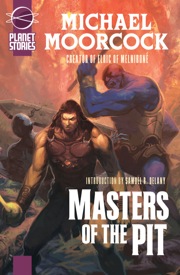
Tags: City of the Beast Kane of Old Mars Mars Masters of the Pit Michael Moorcock |

Tags: City of the Beast Kane of Old Mars Mars Masters of the Pit Michael Moorcock |